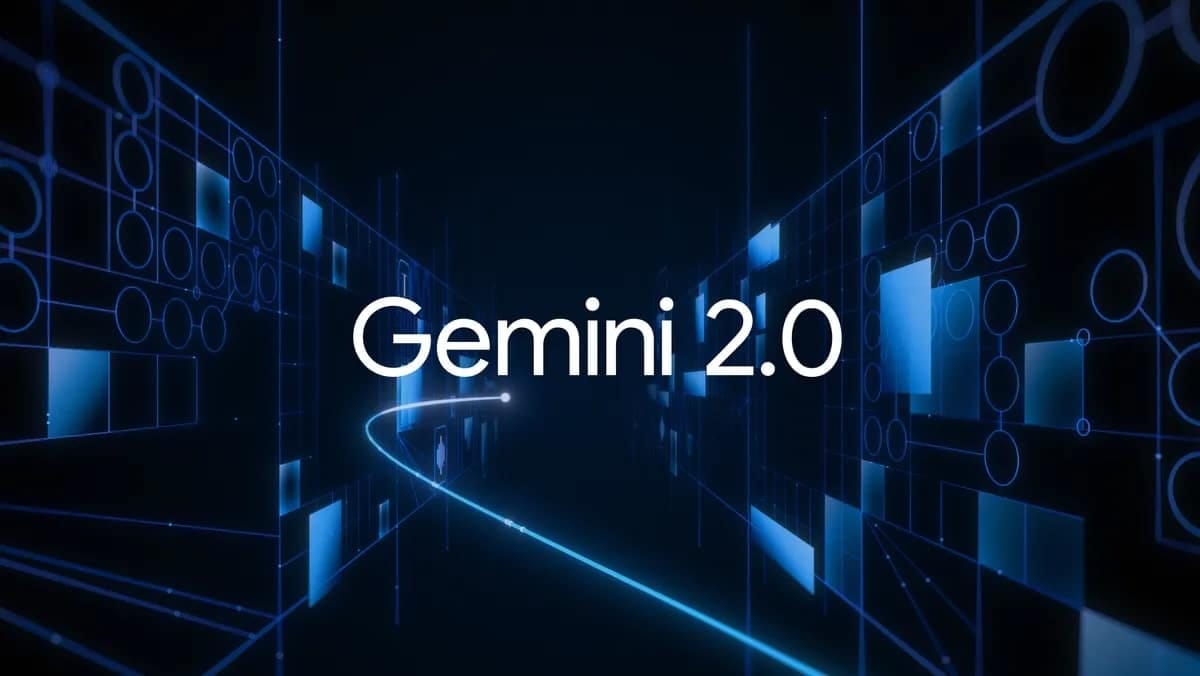Google has launched Gemini 2.0, its most advanced artificial intelligence model to date, marking a milestone in the evolution of AI towards an era of intelligent agents. This announcement reinforces Google’s commitment to technological innovation and the creation of useful tools for users, developers, and businesses. With enhanced capabilities in multimodality and reasoning, Gemini 2.0 positions itself as the benchmark model for developing universal AI agents.
A model designed for action and utility
Gemini 2.0 is not just an incremental improvement over its predecessors, but a redefinition of the role of AI in everyday life. This model offers:
- Native multimodal outputs: it supports input and output in text, images, video, and audio, providing a comprehensive experience.
- Compatibility with native tools: it allows integration with functions like Google Search, code execution, and user-defined custom tools.
- Improved speed: the experimental version Gemini 2.0 Flash doubles the performance of its predecessor, offering low latency and improved responsiveness.
With these features, Gemini 2.0 becomes the engine behind new applications and experiences, such as Deep Research, an advanced feature that acts as a research assistant to explore complex topics and generate custom reports.
New horizons for developers
Gemini 2.0 is available for developers through Google AI Studio and Vertex AI, with support for:
- Multimodal inputs.
- Native image generation.
- Multilingual text-to-speech.
Furthermore, Google has announced the launch of the Multimodal Live APIAn API, abbreviation for “Application Programming Interface,”…, which includes real-time video streaming, audio input, and the ability to use combined tools. These innovations aim to facilitate the development of interactive and dynamic applications.
Prototypes that redefine the limits of AI
The potential of Gemini 2.0 does not stop at commercial products. Google is developing experimental prototypes that explore the possibilities of AI in key areas:
- Project Astra: This universal assistant prototype uses Gemini 2.0 to enhance multilingual dialogue, integrate tools like Maps and Lens, and provide improved memory for personalized interactions.
- Project Mariner: Designed to assist users in web navigation, this prototype utilizes advanced reasoning to complete tasks within the browser, ensuring user privacy and security.
- Jules: An AI-powered code assistant that helps developers directly in workflows on GitHub, addressing issues, developing plans, and executing solutions under supervision.
Applications in gaming and physical environments
Gemini 2.0 is also being utilized in collaboration with game developers like Supercell to create agents that can interpret rules and challenges in games such as “Clash of Clans” or “Hay Day.” Additionally, the model is being tested in robotics, applying its spatial reasoning in physical environments to assist with real-world tasks.
A responsible and safe approach
Google recognizes that the evolution of AI carries significant responsibilities. Therefore, Gemini 2.0 is being developed under strict security and ethical principles, which include:
- Risk assessments: through internal reviews and collaboration with external experts to mitigate potential issues.
- Privacy controls: options to delete sessions and sensitive information.
- Abuse protection: development of mechanisms to prevent fraud and phishing through the detection of malicious instructions.
Conclusion: A step towards the future of AI
The launch of Gemini 2.0 marks a crucial advance in the development of artificial intelligence agents. With a focus on utility, speed, and responsibility, Google is redefining how we interact with technology. This model not only expands the possibilities of AI but also opens new frontiers for innovation, collaboration, and the global impact of artificial intelligence.

